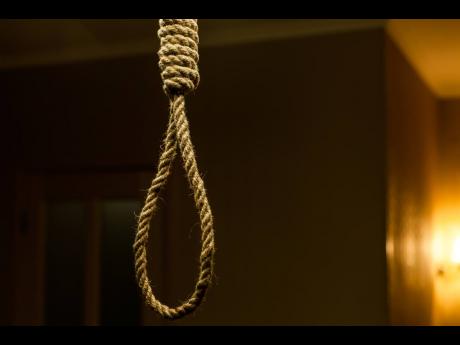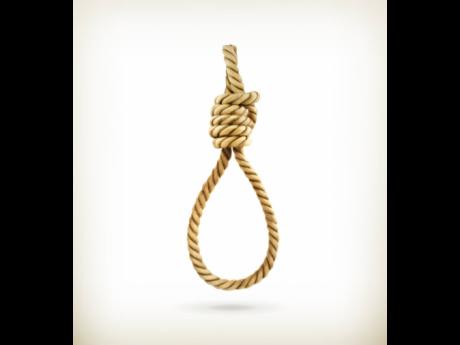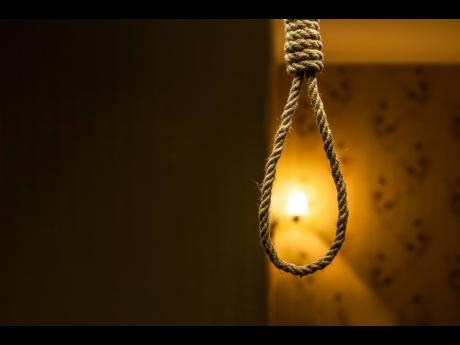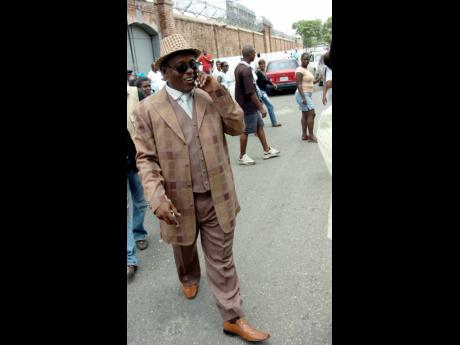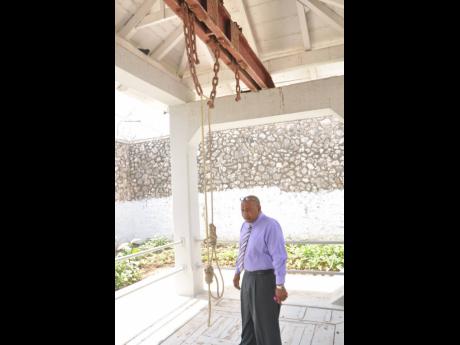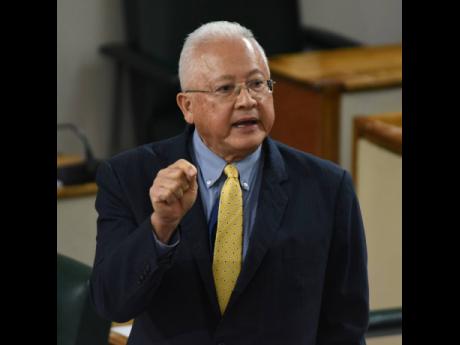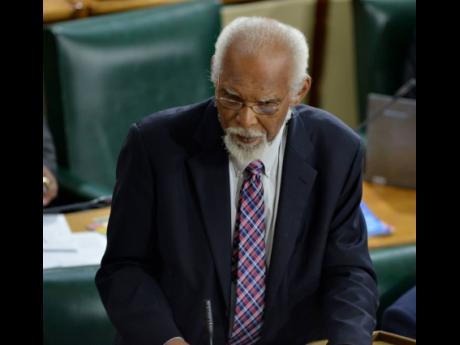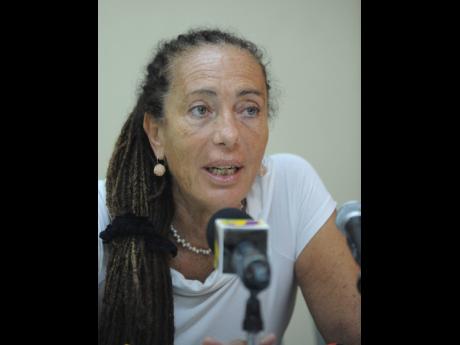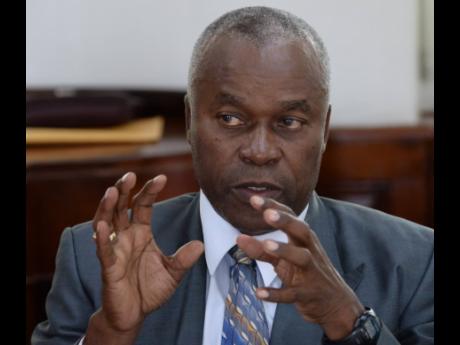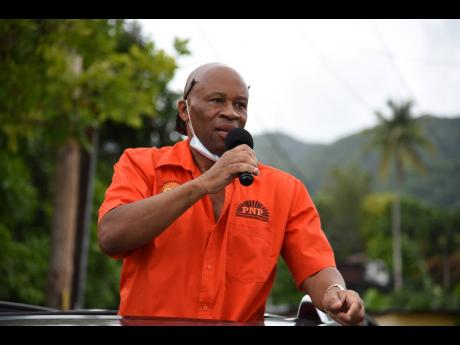TO THE GALLOWS!
72% of J’cans want hangman’s noose activated in crime fight
Seven in 10 Jamaicans are expressing strong support for the use of the death penalty in the fight against crime, believing it would be an effective deterrent. An RJRGLEANER Communications Group-commissioned Don Anderson poll found that 72 per cent...
Seven in 10 Jamaicans are expressing strong support for the use of the death penalty in the fight against crime, believing it would be an effective deterrent.
An RJRGLEANER Communications Group-commissioned Don Anderson poll found that 72 per cent of Jamaicans agreed that the death penalty would help to drive down crime figures, while 20 per cent disagreed. Eight per cent were unsure.
Although Jamaica has retained the death penalty on the books, it is not being carried out. The last execution in Jamaica was in February 1988.
Discussions around capital punishment were recently reignited when Director of Public Prosecutions Paula Llewellyn indicated that the Crown would be pushing for the death penalty in the case against Rushane Barrett, the 23-year-old man accused of killing a Clarendon mother and her four children at their Cocoa Piece home in June.
The demand for strong and decisive action to control the crime crisis that has Jamaica in a chokehold has led to Jamaicans expressing low confidence in National Security Minister Dr Horace Chang, Police Commissioner Major General Antony Anderson and the Jamaica Constabulary Force. Citizens are also losing faith in the Jamaica Defence Force, this institution most trusted by Jamaicans. And there is waning support for the states of public emergency that have been the Government’s main crime-fighting tool in recent years, particularly in high-crime areas of the country.
With 938 murders recorded across the country up to August 14, the public is of the view that the death penalty may be what is needed as a deterrent to stem the bloodletting.
Pollster Anderson noted that his findings in the field revealed that there was very little variation in the average number of persons in support of capital punishment among the demographic groups. It could be concluded then that there was support among all segments of the population, he said.
VIOLENCE CANNOT COUNTER VIOLENCE
Despite the overwhelming support for the death penalty, Justice Minister Delroy Chuck is hoping Jamaica will never return to the days of hanging.
“The likelihood of us returning to the death penalty is very low. It is still on the statute, but I think we know that it has really not been effective in Jamaica and, therefore, we hope it will never return to use in Jamaica,” Chuck told The Sunday Gleaner.
The justice minister said that while he was not dismissing the views of the majority of Jamaicans on the matter, everything requires leadership.
“We must lead the country with knowledge, and the idea to use violence to counter violence is inappropriate. You are merely continuing the cycle of violence. No violence should be used in any way, whether by the State or individuals. We need to curb violence in whatever form it occurs, and I certainly don’t favour any form of State violence and the death penalty is one form of State violence,” Chuck, an attorney-at-law, stated.
He further argued that history has demonstrated that the death penalty has not been proven to be an effective antidote to crime.
“Over a hundred years ago, England used to have the death penalty for over 240 crimes and they discovered long ago that the death penalty has no relationship to the escalation in crime and that is why most countries across the world have removed the death penalty, because it is purely retributive, eye-for-an-eye punishment,” Chuck said.
Attorney-at-law Bert Samuels agreed with the justice minister, but said that he was not surprised that the “horrible crime rate has been met with overwhelming support for the carrying out of the death penalty”.
“This is an issue that has been debated for decades in countries of the world. Empirical evidence shows that in countries where the death penalty is carried out, it does not lead to a reduction in homicides,” Samuels said.
“Because it is the only punishment which is not reversible, and it is a fact that errors have led to the innocent being executed, I cannot support the death penalty,” he added.
Noting that the scope for error was present in any jurisprudence, Samuels highlighted that the British abolished hanging mainly because of a case of an innocent man, Derek Bentley, being executed and was pardoned posthumously in 1998.
“There is the Jamaican case of Sangster and Dixon, who were convicted of capital murder of a police officer based on the testimony of other police officers. They lost their appeal in the Jamaican Court of Appeal that upheld the sentence of death. It was only at the Privy Council that fresh evidence by way of a video recording was introduced, which showed that the men were not the men who carried out the murder,” he added.
“Interestingly, the video evidence was at all times available. The question looms large: What if they did not or could not afford to go to the final court of appeal? They would have been hanged,” said Samuels.
He noted that before the 1990s, all murders were considered capital in Jamaica. That designation, he said, changed when the law was amended to accommodate non-capital murder, allowing for life sentences with a prescribed period before being eligible to apply for parole.
A 1993 landmark decision by the Privy Council in the case of Pratt and Morgan upheld that where the period between the imposition of a sentence of death and execution exceeded five years, it shall be presumed that execution would amount to inhumane or degrading punishment or treatment, which is contrary to the Jamaican Constitution.
Consequently, the governor general refers all such cases to the Privy Council, which recommends commutation to life imprisonment.
The Pratt and Morgan case drastically cut the death row population in the island. There were 190 inmates on death row at the time, and, in keeping with the Privy Council’s guideline in that case, many of the death sentences were commuted to life.
Holding an opposing view, defence attorneys K.D. Knight, QC, and Oswest Senior-Smith support the death penalty.
“There are some horrendous murders and those who have committed the acts have forfeited their rights to further existence. So, therefore, if a murder is committed in the most depraved circumstances, then the only protection that the perpetrator must enjoy is the right to a fair trial and access to all the appellate processes, regardless of his or her financial status. The trial should be by a jury of 12 and the verdict must be unanimous,” Knight told The Sunday Gleaner yesterday.
“The law must clearly circumscribe the circumstances under which the death sentence is applicable. But this is not to say that murders will simply evaporate because of the death penalty.”
Senior-Smith is of the same opinion, supporting the prosecution’s move earlier this year to push for the death penalty for Barrett in the Clarendon massacre case, noting that he believed it would send a strong message to society.
“What I require for my clients is, as far as is legally and procedurally possible, a fair and scrupulous trial and appeal process. If, at the end of the trial and appeal ultimately to the final court, the eventual sanction is death by hanging, then it is to be pursued,” he told The Sunday Gleaner yesterday.
“My position is not, however, to be construed that the death penalty, per se, will be the panacea to reduce the overwhelming crime rate that we are for so long being deluged by. The problem can be effectively addressed and attenuated by prudent policing and pragmatic policies, even within the existing legal architecture.”
THOU SHALT NOT KILL
But for Carla Gullotta, executive director for human rights group Stand Up for Jamaica, the State should not sanction and carry out “killings”.
“I respect the opinion of everybody and I don’t intend to impose my view on anyone. If the majority of the people want to proceed, there is nothing I can do, but I do not agree,” said Gullotta, who pointed out that she supports the thou shalt not kill principle.
“If the State kills, somehow it shows killing is possible. How do you go around telling other people not to kill? We are not a bunch of killers, we are not a gang. The most important thing is reasoning. If we have a wave of violence, there must be a root, there must be a reason,” Gullotta argued.
The human rights activist is convinced that the resumption of hanging would not reduce Jamaica’s murder rate.
“Capital punishment is premeditated killing. Capital punishment is not the solution. Killing one or two isn’t going to terrorise powerful gangs. Jamaica would be making a mistake if it goes the route of utilising capital punishment,” she said.
In November 2008, parliamentarians overwhelmingly chose to retain the death penalty by a vote of 34 to 15, with 10 members absent.
Then executive director of Jamaicans for Justice, Dr Carolyn Gomes, said she was disgusted by the behaviour of the legislators during the vote at Gordon House. She was adamant that the retention of the death penalty would change nothing.
The Senate later voted in December that year 10 to seven in support of the retention. Three members were absent.
Trinidad and Tobago is the only country in the English-speaking Caribbean that retains the mandatory death penalty. In May, the United Kingdom Privy Council ruled that it was not unconstitutional.
Fieldwork for the RJRGLEANER poll was conducted between July 16 and 26 and involved interviews among 1,113 people aged 18 years and over. It has a margin of error of plus or minus three per cent.
Death penalty in Jamaica
The death penalty is limited to the following aggravated murder offences:
i. murder of security forces, correctional officer, justice of the peace, jurors, or civil servants
ii. murder for hire
iii. double murders or repeat murders
iv. murder in the furtherance of a serious crime
v. murder of witnesses in civil or criminal cases
vi. murder committed in the course or furtherance of an act involving the use of violence which is calculated to create fear in the public
As a member state of the Organization of American States and having adopted the Inter-American Convention on Human Rights, Jamaica is prohibited from adding new capital offences.
The following classes of individuals are said to be exempt from the death penalty:
i. individuals under the age of 18 at the time of the crime
ii. pregnant women
iii. the intellectually disabled
iv.the mentally ill
v. the elderly
Last executions in Jamaica
A Daily Gleaner report published on February 19, 1988 noted that two condemned men were hanged for murder simultaneously on the gallows of the St Catherine District Prison at 8:30 the previous morning.
The men – Standford Dinnall and Natan Foster – were convicted in the Home Circuit Court and the St Thomas Circuit Court, respectively.
“During their last days in the death cells, they received spiritual guidance from the Reverend Fr Alwyn Harry, SJ, and Reverend Fr Bryan Massie, SJ. Before going to the gallows this morning, Dinnall gave a written message to Fr Harry, which read, in part, ‘so I am telling all the youths to count to 100 before you do anything foolish; and leave company alone. Pick and choose your friends and make sure they [are] honest and truthful’,” read a section of the report.
The execution was witnessed by a number of people, including the commissioner of the correctional services, the superintendent of prisons and the superintendent of the Public Works Department.

